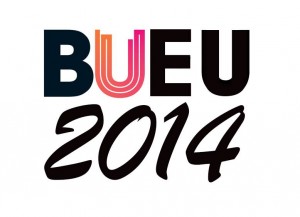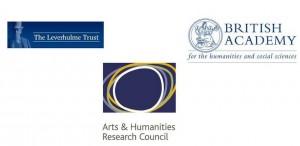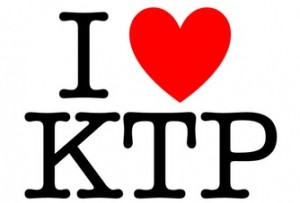The following opportunities have been announced. Please follow the links for more information:
The BBSRC‘s Bioinformatics and Biological Resources (BBR) Fund aims to: support the bioscience research community with the establishment, maintenance and enhancement of infrastructures; support high quality bioinformatics and biological resources that align with otheir updated Strategic Plan: The Age of Bioscience; supply long-term funding and provide a stable environment for resource development and provision. The indicative budget for the call is £6.5M, subject to the quality of applications received, and will incorporate capital investment in software infrastructure. Full applications must be submitted using Je-S by 08/05/14 16:00.
The BBSRC Enterprise Fellowships aim to increase exploitation of ideas with commercial potential from BBSRC supported research. The Enterprise Fellowships are designed to enable an individual to advance the commercialisation of existing research results or technological developments and are tenable for a period of one year. The Fellowships enable the holder to concentrate on developing the commercial potential of their research, whilst also receiving formal training in relevant business skills. The Enterprise Fellowship programme provides entrepreneurship and business skills training through the participating Training Provider, currently the Entrepreneur Business School (EBS), which will be directly relevant to the Fellow as they seek to build their new business. Closing date 16/05/14.
 The British Academy receives a generous grant from the Sino-British Fellowship Trust (SBFT), established by the late Dr Elizabeth Frankland Moore, to support individual or co-operative research projects. Research may be conducted either in Britain or in China, or in both countries, and must involve person-to-person contacts. Up to £10,000 is available. The closing date is 16/04/14.
The British Academy receives a generous grant from the Sino-British Fellowship Trust (SBFT), established by the late Dr Elizabeth Frankland Moore, to support individual or co-operative research projects. Research may be conducted either in Britain or in China, or in both countries, and must involve person-to-person contacts. Up to £10,000 is available. The closing date is 16/04/14.
Through the British Academy, the Ancient Persia Fund was established in 1988 in memory of the distinguished Russian scholar Vladimir G Lukonin. The aim of the fund is to encourage and support the study of Ancient Persia and related areas including Central Asia, in the period before the coming of Islam. Activities supported by the Fund include research grants for the study of Ancient Iran and neighbouring areas, covering the travel costs of students and scholars. Applications should be submitted by 16/04/14.
The Leverhulme Trust are inviting university applications to their new Leverhulme Doctoral Scholarships scheme which was announced in January 2014 as a means to support doctoral studies in UK universities and to nurture the future generation of aspiring young researchers. At a time of growing undergraduate debt, the Board wishes to ensure that increased indebtedness does not discourage graduates from undertaking doctoral study. The initial investment in the scheme is over £10 million, providing for 150 scholarships over the next three years. Closing date 11/09/14 at 16:00
NERC seeks proposals to host a new Centre for Doctoral Training specialising in risk and mitigation; using big data. Funding for ten studentships will be awarded per annum, and the CDT award will provide funding for three years of new student intake from 2015-16. Closing date 16:00 on 26/06/14
NERC and BBSRC invite proposals from consortia of research organisations interested in hosting a new Centre for Doctoral Training, specialising in the training of scientists with a high level of rounded skills and knowledge to tackle current and future challenges in soil science. Funding for eight studentships will be awarded per annum, and the CDT award will provide funding for three years of new student intake from 2015-16. Closing date 16:00 on 26/06/14
NERC is inviting proposals to its International Opportunities Fund (IOF). The IOF scheme provides resources to NERC-supported researchers to allow them to forge long-term partnerships with overseas scientists that add value to current NERC-funded science. IOF grants are pump-priming, to help stimulate novel research collaborations. up to £40,000 is available. The closing date is 16:00 on 22/04/14.
The Wellcome Trust is offering funding for accommodation and travel for ‘Gathering Intelligence: A free seminar regarding Thomson’s life and work’ to be held at Edinburgh University Library on 16th May 2014. Applicants must apply by 28/04/14.
Please note that some funders specify a time for submission as well as a date. Please confirm this with your RKE Support Officer.
You can set up your own personalised alerts on ResearchProfessional. If you need help setting these up, just ask your School’s RKE Officer in RKE Operations or see the recent post on this topic, which includes forthcoming training dates up to November 2014.














 This session will provide researchers with a broad overview of the practical and philosophical aspects of mixed methods research. The following areas will be outlined:
This session will provide researchers with a broad overview of the practical and philosophical aspects of mixed methods research. The following areas will be outlined:










 New Nepal scoping review on maternal & neonatal health
New Nepal scoping review on maternal & neonatal health Fourth INRC Symposium: From Clinical Applications to Neuro-Inspired Computation
Fourth INRC Symposium: From Clinical Applications to Neuro-Inspired Computation Writing policy briefs
Writing policy briefs Upholding Excellence: The Concordat to Support Research Integrity
Upholding Excellence: The Concordat to Support Research Integrity ECR Funding Open Call: Research Culture & Community Grant – Application Deadline Friday 12 December
ECR Funding Open Call: Research Culture & Community Grant – Application Deadline Friday 12 December MSCA Postdoctoral Fellowships 2025 Call
MSCA Postdoctoral Fellowships 2025 Call ERC Advanced Grant 2025 Webinar
ERC Advanced Grant 2025 Webinar Horizon Europe Work Programme 2025 Published
Horizon Europe Work Programme 2025 Published Horizon Europe 2025 Work Programme pre-Published
Horizon Europe 2025 Work Programme pre-Published Update on UKRO services
Update on UKRO services European research project exploring use of ‘virtual twins’ to better manage metabolic associated fatty liver disease
European research project exploring use of ‘virtual twins’ to better manage metabolic associated fatty liver disease